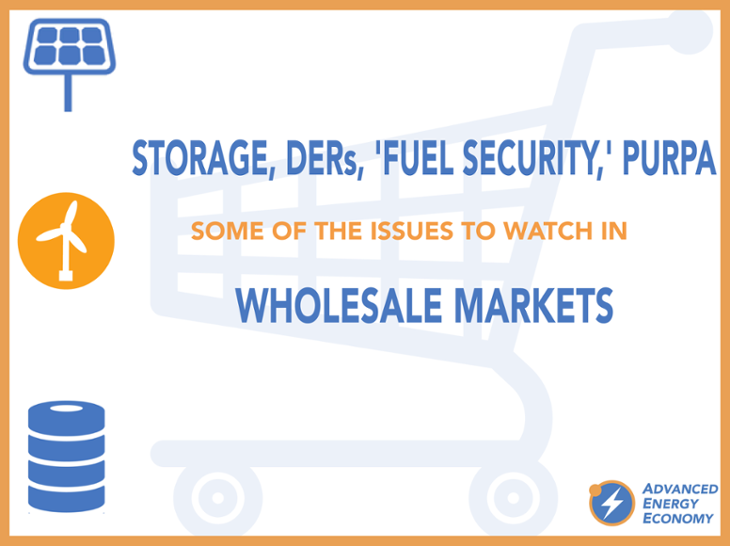/Wholesale%20Market%20RTO-745.png?width=745&name=Wholesale%20Market%20RTO-745.png)
Friction between organized wholesale electricity markets operated by Regional Transmission Organizations and Independent System Operators (RTOs/ISOs) and the trend – driven by policy, technology, and market forces – toward cleaner energy options have generated plenty of headlines in recent years. The barriers to entry that advanced energy technologies sometimes face in wholesale markets have come into stark relief, as federal policies like the Federal Energy Regulatory Commission’s (FERC) Minimum Offer Price Rule (MOPR), legacy market rules and market designs, and efforts to use the levers of federal power to prop up aging uneconomic power plants and put new regulatory barriers in front of clean energy resources collide with rapidly increasing state and customer ambitions to switch to clean energy.
Despite these conflicts, competitive wholesale markets have still shown themselves to be a platform to integrate new technologies, increase transparency, and harness competitive forces over broad geographic regions to scale development of low-cost advanced energy technologies, improve customer access to those technologies, and replace uneconomic existing fossil fuel plants. FERC opened these markets to full participation by energy storage resources with its Order No. 841, creating a 40 GW opportunity to scale up development of technology that will be instrumental in the 100% clean energy grid of the future. And outside of FERC, RTO/ISO stakeholder processes are moving ahead on their own to reform market rules and operating practices to integrate transformative hybrid solar/wind-plus-storage power plants and consider a role for carbon pricing in the markets, providing a forum for discussions and market design progress not available in other regions.
/AEE%20Goes%20to%20Court%202-730.jpg?width=730&name=AEE%20Goes%20to%20Court%202-730.jpg)
